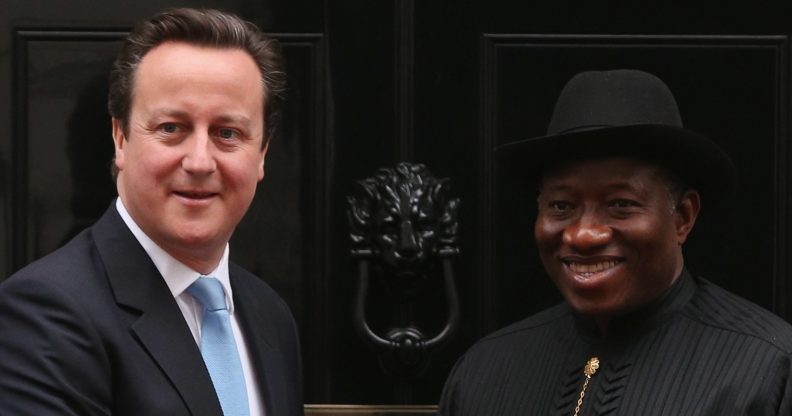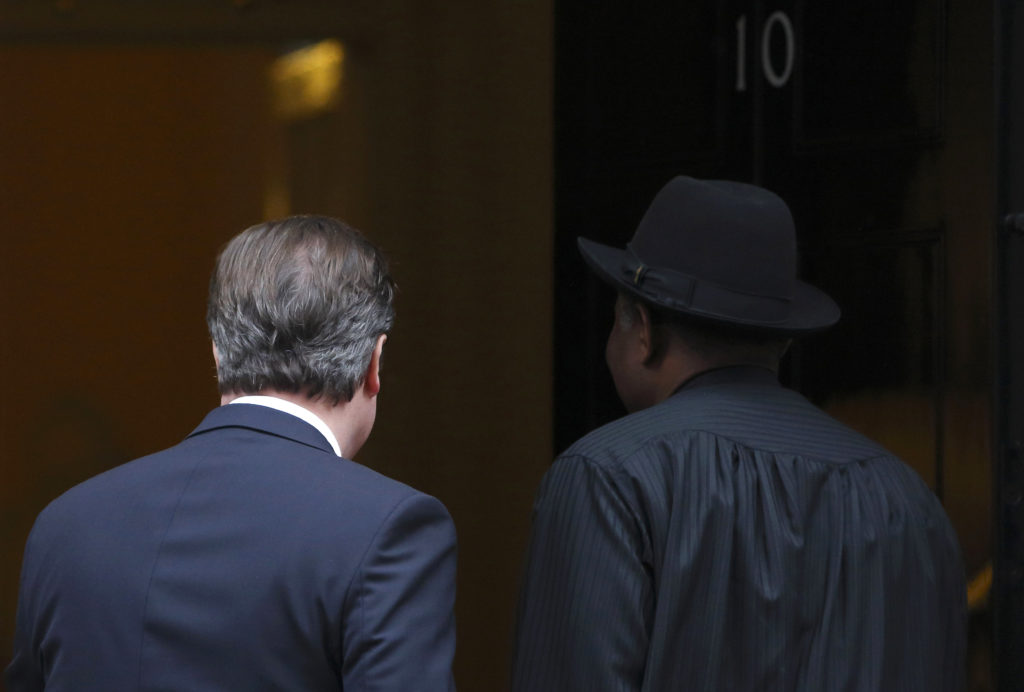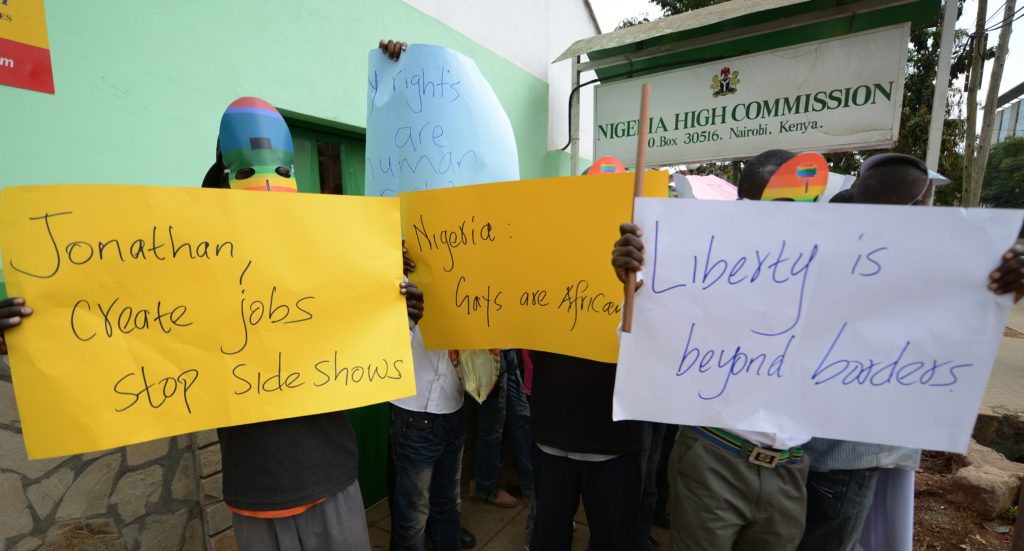David Cameron held ‘deep grudges’ against ex-Nigerian president over gay rights

Former Nigerian president Goodluck Jonathan (R) is welcomed to Downing Street by then British prime minister David Cameron in 2013. (Oli Scarff/Getty Images)
Former Nigerian president Goodluck Jonathan has claimed that ex-UK prime minister David Cameron harboured “grudges” against him because of their clashing views on marriage equality.
In his recently published memoirs, ‘For the Record’, Cameron claimed that the then Nigerian leader stymied efforts to rescue some of the 276 schoolgirls abducted by Boko Haram in 2014.
Under Cameron’s government, marriage equality was passed in Britain in 2013.
Jonathan, 61, responded to the allegations by saying that, at the time, Cameron was enacting “unbearable pressure” on him after the president passed a bill prohibiting same-sex marriage in Nigeria, reported newspaper Punch Nigeria.
What happened?
In April 2014, 276 schoolgirls were kidnapped from the Government Secondary School in the town of Chibok in Borno State, Nigeria.
Responsibility for the kidnappings was claimed by Boko Haram, an extremist terrorist organization based in northeastern Nigeria.
Loved ones of the girls waited agonising weeks as Nigerian officials released the names of those abducted, while Nigerian soldiers combed the countryside to locate the girls.

Former Nigerian president Goodluck Jonathan (R) is welcomed to Downing Street by then British prime minister David Cameron in 2013. (Oli Scarff/Getty Images)
While more than 100 of the girls have seen been found or rescued, many are still missing in a crisis that continues to haunt the West African country.
According to Cameron, British intelligence officers and troops offered to rescue the girls after tracking down a potential location.
But Jonathan was “asleep at the wheel.
“When he eventually made a statement, it was to accuse the campaigners of politicising the tragedy. And absolutely crucially, when we offered to help rescue the girls we had located, he refused,” he wrote.
Former Nigerian president: Cameron was ‘nursing grudges’.
Jonathan decried Cameron’s allegations of corruption. The crux, the former president claimed, was the two leader’s contrasting stances on marriage equality.
He said: “I do, however, know that Mr. Cameron has long nursed deep grudges against me for reasons that have been published in various media.
“As such, on Monday, January 13 2014, I signed the Same-Sex Marriage Prohibition Bill into law after the bill had been passed by an overwhelming bipartisan majority of Nigeria’s parliament, in line with the wishes of the Nigerian people.

Kenyan gay and lesbian organisations demonstrate outside the Nigerian High Commission in Nairobi on February 7, 2014. Nigerian President Goodluck Jonathan in 2013 had signed a bill into law against gay marriage and civil partnerships. (IMON MAINA/AFP/Getty Images)
“This happened shortly after a study of 39 nations around the world by the US Pew Research Centre came up with a finding which indicated that 98 percent of Nigerians were opposed to the idea of gay marriage.
“Immediately after I took this patriotic action, my government came under almost unbearable pressure from Mr. Cameron, who reached me through envoys, and made subtle and not so subtle threats against me and my government.”
LGBT+ rights in Nigeria.
Under an interpretation of Shari’a law in the twelve northern states of Nigeria, same-sex relations are punishable by death by stoning.
While in southern Nigeria and secular criminal laws of the north, the punishment is 14 years imprisonment.
With anti-LGBT views encoded into local laws, there has been a long line of anti-LGBT actions enforced by the authorities in Nigeria.
In August 2018, police raided a hotel in Lagos and arrested 57 men on suspicion of having gay sex, just weeks after six men in the south-eastern state of Abia were arrested for the same reason.
The 57 men, who said they were simply attending a birthday party, were charged by a court with three counts of conspiracy, belonging to a secret cult and unlawful gathering, and were each held on bail of ₦200,000 (£430).
The year before, 42 men were arrested at Lagos hotel for having gay sex, just months after 45 out of a group of 53 people arrested on suspicion of attending a same-sex wedding jumped bail.
It is relatively common for people to be targeted by the police for this reason in Nigeria. A total of 12 men were arrested by the Hisbah in Kano in 2015 for also planning a gay wedding.
The men pleaded that they had been celebrating a birthday, not a wedding.

